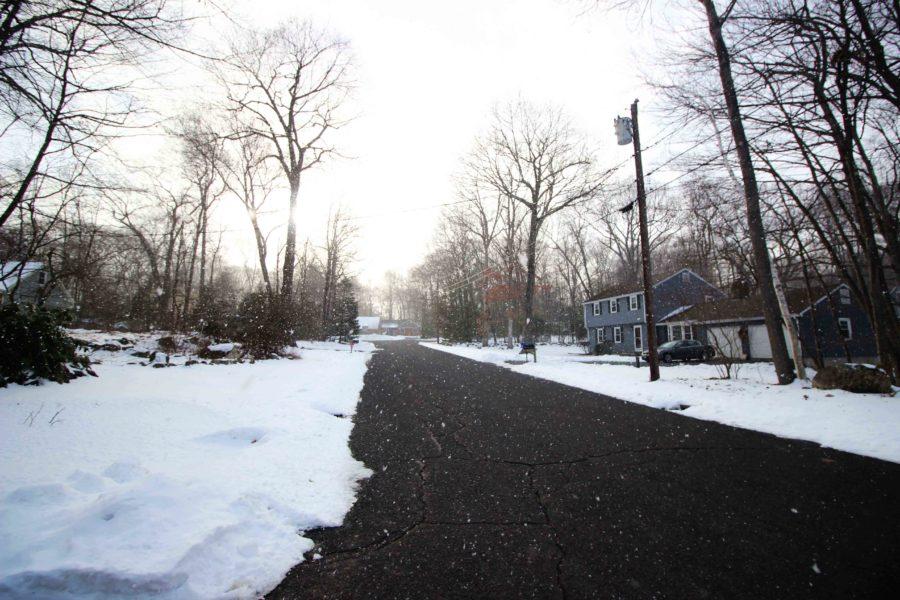Behind the Scenes of a Snow Day with Alan Beitman
March 21, 2017
On a dark, freezing winter morning, the shrill ring of your phone wakes you from a deep slumber. Groggily for half a second you wonder, “who on Earth is calling at 5:30 on a Tuesday morning?” before the realization sets in: only one man ever calls at 5:30 in the morning. Superintendent Alan Beitman’s voice fills your ears with the best news you could possibly hope for: a snow day. Relieved of six hours’ worth of hard work and stress, you promptly fall back to sleep while the snow outside piles higher and higher.
While the rest of Region 10 snuggles warm in their beds content with the promise of a couple hours more sleep, Beitman is dressed and working hard. He has been up since 4 a.m., making a decision that has the potential to save lives. His choices are sometimes critiqued as overcautious and unnecessary, but you can rest assured that his decisions are well-informed. Meteorologists, superintendents from neighboring districts, and over 20 years of experience aid him in deciding between a cancellation, early dismissal, or 90-minute delay.
From the safety and comfort of his house, he joins a conference call at 4:30 with about 20 other superintendents from neighboring districts and towns and a man named John Bagioni. Mr. Bagioni, a retired science teacher at Oliver Wolcott Tech runs a meteorology business for schools in Connecticut giving straightforward, unbiased forecasts to superintendents to help in their decision, unlike the televisions and radio stations that exaggerate the weather to hype everyone up for entertainment, according to Mr. Beitman. After consulting with Mr. Bagioni, the other superintendents, the Highway departments, the Burlington police, and the Connecticut State Police, Mr. Beitman’s choice is usually quite clear. But even with all this help, the decision is difficult and there are many factors that must be considered.
Timing, according to Mr. Beitman, is the biggest variable. A delay, early dismissal, or cancellation essentially depends on when a storm starts and stops. He explains, “If it won’t stop before 6 or 6:15, I have to delay. If it won’t stop before 9 or 10, I have to cancel. This is mostly because of the plow drivers. Plow drivers can only work for 8 hours, then they are required a three-hour break for sleep. So if the storm starts at 5 p.m. and they start they start plowing then, they’ll have to take a break at some point to go home and sleep. The trucks might not be able to plow for the bus route the next day. Or, the snow started at 10 p.m. and was predicted to continue until 10 or 11 in the morning. I’m already done, I’ve made my decisions based solely on the plow drivers. They’ll have to come off the road after 8 hours and, in a town like this, there’s no backup, no one to fill their place.”
Mr. Beitman’s decisions have been questioned in the past.
“Sometimes he calls a snow day when there’s only one inch of snow,” says junior Savanna Arcuri.
But when put into perspective, his perhaps overcautious decisions seem appropriate. Mr. Beitman considers 100 seniors who have limited experience driving in the snow, 500 employees, 2,500 students, and 28 to 35 buses, and all the bad things that can happen to them on the road.
He admits, “It’s a tricky balance – I want to get the kids in for as long as possible, but I don’t want to take any chances.”
The chances ultimately become the deciding factor for our superintendent.
“The bottom line for me is this: I’m not going to a wake or a funeral for a child or staff member. If I’m going to err, I’m going to err on the safe side and cancel school. Nothing is worse than me going to see a child in a hospital room who got hurt in a bus accident or a car driving off the road,” said Beitman. “It’s a day of school. So we go in June. Nobody likes to go in June, I don’t like to go in June, but we don’t want anybody hurt.”
Such second guesses of Mr. Beitman’s call abounded one recent December day, when the weather fizzled instead of raged.
“That delay that I called before Christmas, some people didn’t want a delay. But I said to myself, it’s like three days before Christmas. The worst thing I can do to a family is send their child to the hospital for Christmas,” he said. “It’s just not worth it. Life can’t be replaced.”
And Mr. Beitman’s personal feelings about snow days? “Mostly, I take it as a vacation day and I work from home, or go to work when the weather has calmed down. I stay near my computer and phone until around 10 to make sure everyone got the message and understands the situation. By 10 I’ve been up since 4, and I’ve had about eighteen cups of coffee. But the worst for me is back-to-back snow days, when I have to get up at 4 a.m. multiple days in a row.”
It’s probably safe to say that most students feel a little differently about back to back snow days than Mr. Beitman does.
